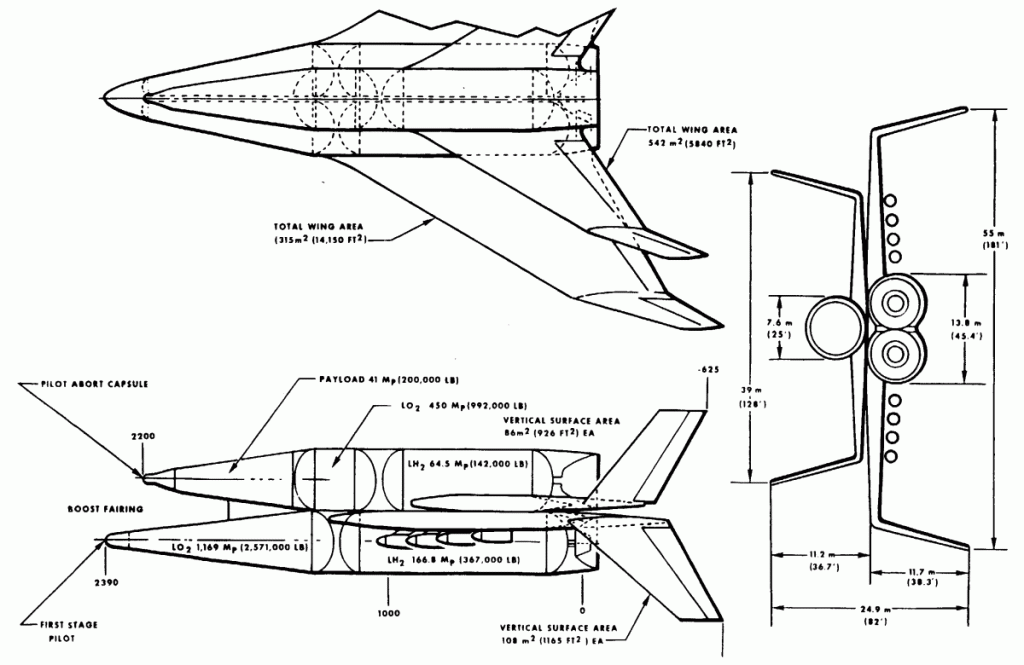Couple being very ill with desperately trying to make a dime, I’ve not had much opportunity to scour my files recently for aerospace projects to blog about. So here’s one: a notion for a fully reusable two-stage-to-orbit launch vehicle produced by North American around 1963. This was part of a study for reusable launchers with a payload of 50 to 100 tons, with the baseline design being a reusable version of the Saturn V.
This design was at the far end of the possible designs, with “nail wings onto S-IC and S-II stages” being on the near-term end. This design would be fully reusable with both stages manned and powered by LOX/LH2 burning expansion-deflection rocket engines. As with many such designs of the time, the wing area is relatively gigantic.

Expansion-deflection engines are one of those weird technological dead-ends that remain intriguing anyway. Certainly they were looked at for big thrust packages in the Post-Saturn era. I wonder if anyone actually built and flew one.
They seemed to have a bit of a hydrolox fetish. You needed some pretty extreme engines to get large liftoff thrust from reasonable-sized hydrolox engines(witness the awesome SSME, a more impressive feat than the F-1 really).
LH2 is an excellent fuel for upper stage work and maybe for a sustainer engine like SLS(better, AJAX, let’s ditch the solids!), but for a main get-you-off-the-pad engine? Mmm. Don’t think so.